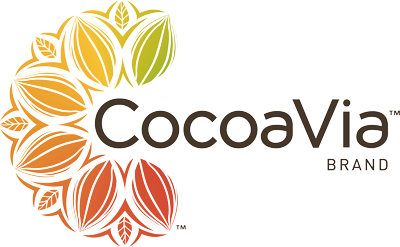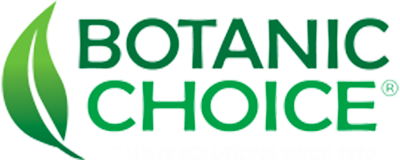Best Vitamins & Supplements Deals
-
 Christmas Countdown Sale - 30% off Sitewide
+
2%
Cash Back
from TruHeight
Christmas Countdown Sale - 30% off Sitewide
+
2%
Cash Back
from TruHeight
-

Get 15% off All Your Orders + 6% Cash Back from HerbsPro -
 Up to 20% off The Season's Standouts
+
6.2%
Cash Back
from iHerb
Up to 20% off The Season's Standouts
+
6.2%
Cash Back
from iHerb
-
 Get 25% off All Orders
+
6%
Cash Back
from HerbsPro
Get 25% off All Orders
+
6%
Cash Back
from HerbsPro
-
 Up to 60% off iHerb Specials
+
6.2%
Cash Back
from iHerb
Up to 60% off iHerb Specials
+
6.2%
Cash Back
from iHerb
-
 New Launch: California Gold Nutrition Beauty
+
6.2%
Cash Back
from iHerb
New Launch: California Gold Nutrition Beauty
+
6.2%
Cash Back
from iHerb
-
 Shop Beauty, Vitamins, Medicine & Everyday Essentials
+
2%
Cash Back
from CVS
Shop Beauty, Vitamins, Medicine & Everyday Essentials
+
2%
Cash Back
from CVS
-
 Shop Sale Nutritious Products.
+
3%
Cash Back
from Sunwarrior
Shop Sale Nutritious Products.
+
3%
Cash Back
from Sunwarrior
-

Bundle and Save 20% off Orders. + 12% Cash Back from Nature Made -
 Shop Best Sellers.
+
6%
Cash Back
from Happy Mammoth
Shop Best Sellers.
+
6%
Cash Back
from Happy Mammoth
-
 Free Shipping on Every Order.
+
5%
Cash Back
from Tru Niagen
Free Shipping on Every Order.
+
5%
Cash Back
from Tru Niagen
Featured Vitamins & Supplements Brands
-
 6.2%
Cash Back
from iHerb
6.2%
Cash Back
from iHerb
-
 12%
Cash Back
from Nature Made
12%
Cash Back
from Nature Made
-
 6%
Cash Back
from Happy Mammoth
6%
Cash Back
from Happy Mammoth
-
 5%
Cash Back
from Tru Niagen
5%
Cash Back
from Tru Niagen
-
 15%
Cash Back
from Amy Myers MD
15%
Cash Back
from Amy Myers MD
-
 5.2%
Cash Back
from Walgreens
5.2%
Cash Back
from Walgreens
-
 6%
Cash Back
from Optimum Nutrition
6%
Cash Back
from Optimum Nutrition
-
 6%
Cash Back
from Gatorade
6%
Cash Back
from Gatorade
-
 3%
Cash Back
from Myprotein
3%
Cash Back
from Myprotein
-
 5%
Cash Back
from cbdMD
5%
Cash Back
from cbdMD
-
 3%
Cash Back
from Trubar
3%
Cash Back
from Trubar
-
 3%
Cash Back
from Sports Research
3%
Cash Back
from Sports Research
-
 6%
Cash Back
from Key Nutrients
6%
Cash Back
from Key Nutrients
-
 4%
Cash Back
from CON-CRET Creatine
4%
Cash Back
from CON-CRET Creatine
-
 15%
Cash Back
from Performix
15%
Cash Back
from Performix
-
 6%
Cash Back
from HerbsPro
6%
Cash Back
from HerbsPro
-
 6%
Cash Back
from Momentous
6%
Cash Back
from Momentous
-
 7%
Cash Back
from JJ Smith
7%
Cash Back
from JJ Smith
-
 5%
Cash Back
from Cellucor
5%
Cash Back
from Cellucor
-
 2%
Cash Back
from Supplement Hunt
2%
Cash Back
from Supplement Hunt
-
 20%
Cash Back
from HealthyMale
20%
Cash Back
from HealthyMale
-
 11%
Cash Back
from BrickHouse Nutrition
11%
Cash Back
from BrickHouse Nutrition
-
 4%
Cash Back
from Orgain
4%
Cash Back
from Orgain
-
 6%
Cash Back
from Bad Athletics
6%
Cash Back
from Bad Athletics
-
 4%
Cash Back
from Vitamix
4%
Cash Back
from Vitamix
-
 4%
Cash Back
from GAT Sport
4%
Cash Back
from GAT Sport
-
 5%
Cash Back
from Nutribullet
5%
Cash Back
from Nutribullet
-
 5%
Cash Back
from AnimalPak
5%
Cash Back
from AnimalPak
-
 6%
Cash Back
from Campus Protein
6%
Cash Back
from Campus Protein
-
 2%
Cash Back
from Blue Sky Vitamin
2%
Cash Back
from Blue Sky Vitamin
-
 2%
Cash Back
from Swanson
2%
Cash Back
from Swanson
-
 5%
Cash Back
from CocoaVia
5%
Cash Back
from CocoaVia
-
 6%
Cash Back
from Power Life
6%
Cash Back
from Power Life
-
 6%
Cash Back
from VitaSprings
6%
Cash Back
from VitaSprings
-
 5%
Cash Back
from VitaMedica
5%
Cash Back
from VitaMedica
-
 6%
Cash Back
from Hairburst
6%
Cash Back
from Hairburst
-
 6%
Cash Back
from Sovereign Laboratories
6%
Cash Back
from Sovereign Laboratories
-
 3%
Cash Back
from Texas Superfood
3%
Cash Back
from Texas Superfood
-
 10%
Cash Back
from Botanic Choice
10%
Cash Back
from Botanic Choice
-
 6%
Cash Back
from SeraLabs
6%
Cash Back
from SeraLabs
-
 12%
Cash Back
from Diet Doc
12%
Cash Back
from Diet Doc
-
 7%
Cash Back
from Jacked Factory
7%
Cash Back
from Jacked Factory
-
 6%
Cash Back
from Honed
6%
Cash Back
from Honed
-
 5%
Cash Back
from H-PROOF
5%
Cash Back
from H-PROOF
-
 $15
Cash Back
from ColonBroom
$15
Cash Back
from ColonBroom
-
 10%
Cash Back
from BrainMD
10%
Cash Back
from BrainMD
-
 7%
Cash Back
from FemiClear
7%
Cash Back
from FemiClear
-
 5%
Cash Back
from Enviromedica
5%
Cash Back
from Enviromedica
-
 8%
Cash Back
from Liquid Health
8%
Cash Back
from Liquid Health
-
 3%
Cash Back
from Vega
3%
Cash Back
from Vega
-
 1%
Cash Back
from MUDWTR
1%
Cash Back
from MUDWTR
-
 3%
Cash Back
from Nashua Nutrition
3%
Cash Back
from Nashua Nutrition
-
 2%
Cash Back
from TruHeight
2%
Cash Back
from TruHeight
-
 $30
Cash Back
from Bestfactor
$30
Cash Back
from Bestfactor
-
 5%
Cash Back
from Isagenix
5%
Cash Back
from Isagenix
-
 3%
Cash Back
from A1Supplements
3%
Cash Back
from A1Supplements
-
 7%
Cash Back
from Tropical Oasis
7%
Cash Back
from Tropical Oasis
-
 1%
Cash Back
from Vitamin Shoppe
1%
Cash Back
from Vitamin Shoppe
-
 6%
Cash Back
from Discipline
6%
Cash Back
from Discipline
-
 3%
Cash Back
from VSL#3
3%
Cash Back
from VSL#3
Get Your Happy Hoopladays Deals
Enjoy deals up to 80% off on holiday gifts. Shop Now

Shop All
With so many advertisements pushing the supposed benefits of vitamins and supplements, it can be hard to separate fact from fiction in order to understand the true benefits of taking vitamins or the upside from using supplements for health purposes or in association with achieving fitness goals.
There are two main families of vitamins, broken down into fat-soluble vitamins and water-soluble vitamins. Vitamins A, D, E, and K are the four fat-soluble vitamins. In the presence of dietary fat, these vitamins are more easily absorbed by the body. There are nine vitamins that are water soluble. With one exception, they aren't kept in the human body. Any remaining water-soluble vitamins are excreted in the urine. Although the body stores a tiny amount of these vitamins, they must be taken on a regular basis to avoid a deficiency. The only water-soluble vitamin that can be retained in the liver for a long time is vitamin B12.
Vitamins are a collection of compounds that are required for appropriate cell growth, development, and function. There are 13 important vitamins, according to US government sources. The term "essential vitamins" refers to vitamins that are required for the body to function effectively. These thirteen vitamins are as follows (in alphabetical/numeric order): Biotin (B7), Folate (folic acid and B9), Pantothenic acid (B5), Vitamin A, Vitamin B1 (thiamine), Vitamin B2 (riboflavin), Vitamin B3 (niacin), Vitamin B6, Vitamin B12 (cyanocobalamin), Vitamin C, Vitamin D, Vitamin E, Vitamin K. A few of the lesser-known vitamins from this list may include Niacin, Biotin, Pantothenic acid, Riboflavin, and Thiamine. A bit more detail on these critical vitamins is as follows:
- Thiamine, also known as vitamin B1, aids the conversion of carbohydrates into energy in the bodily cells. It's critical to consume adequate carbohydrates during pregnancy and breastfeeding. It is also necessary for the proper functioning of the heart and the health of nerve cells.
- Riboflavin, also known as vitamin B2, interacts with the other B vitamins. It is necessary for body growth and red blood cell formation.
- Pantothenic acid is required for food metabolism. It's also involved in hormone and cholesterol synthesis.
- Niacin is a B vitamin that keeps your skin and nerves healthy and has cholesterol-lowering properties that may be preferable to prescription cholesterol medications for certain individuals.
- Biotin is required for protein and carbohydrate metabolism, as well as the creation of hormones and cholesterol.
Be sure to avoid vitamin deficiency, which could have dire unintended health consequences. More information on Vitamin D deficiency, for example, highlights why vitamin D is so important.































































